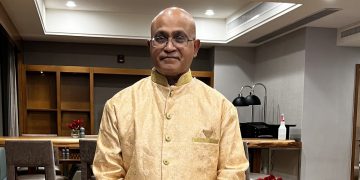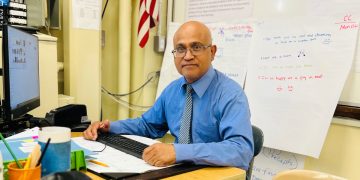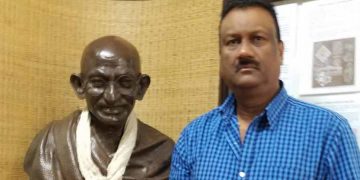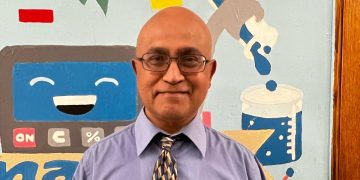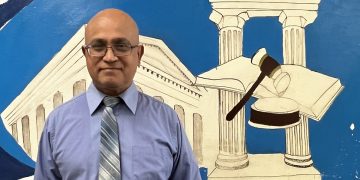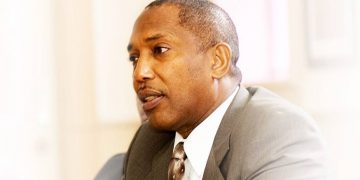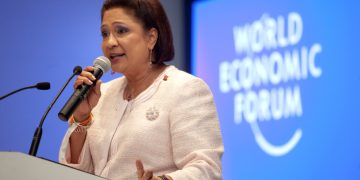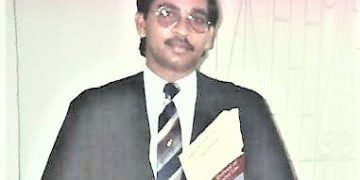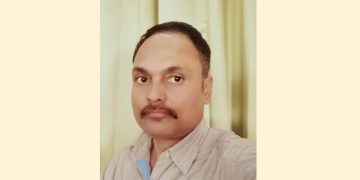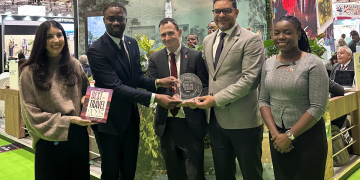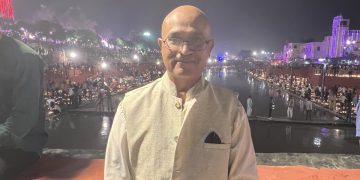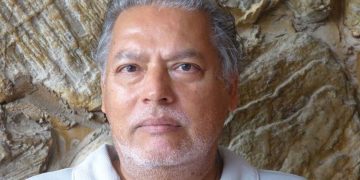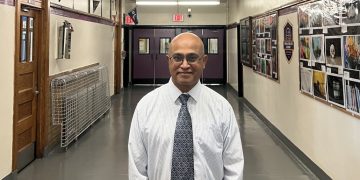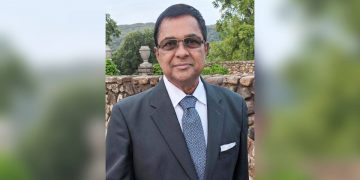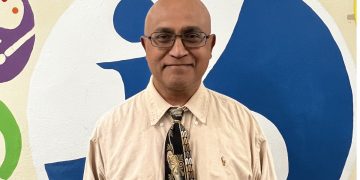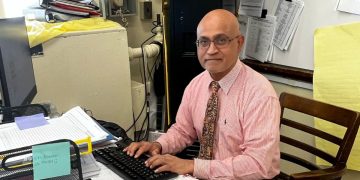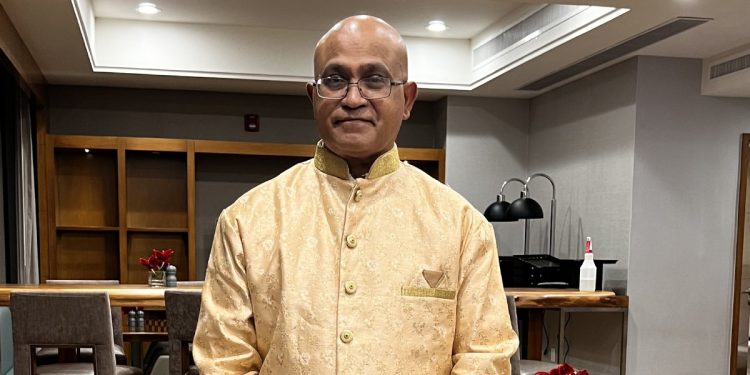I do not wish to engage in a running commentary battle with Clement Rohee and or with other Communists, present or former. However, remarks made that Dr Baytoram Ramharack, Ravi Dev, Vassan Ramracha, me, and others who critiqued Dr Cheddi Jagan being used to label us as anti Jagan’s (Cheddi and Janet) and anti-PPP need correction or some form of explanation. Baytoram and others mentioned above belonged to a group that was anti-communist and not anti-Jagan’s (PPP). We committed to a struggle for the removal of the dictatorship and for restoration of democracy, not the installation of a communist regime. We tried to reform Dr Jagan and the PPP away from communism to make him (it) electable and acceptable to Washington and the West. Baytoram, Ravi, I, and a few others played a significant role in the restoration of democracy culminating in FFE and Jagan’s election as President. The Jagan’s and the PPP would be beneficiaries of our long dedicated struggle against the dictatorship.
Rohee and other communists went berserk on any critique of the Jagan’s. It didn’t matter whether the critiques were factual. One went after my commentary on constitutional reform in which I stated that people were disappointed that Dr. Jagan and his PPP reneged on their commitment to replace the Burnham constitution after their electoral victory and restoration of democracy in 1992. That fact is indisputable regardless of the reasons for the failure r reluctance of Jagan to honor it.
We were and are anti-communist as we believe it never served the interest of colonial Guiana or independent Guyana. Communism deprived people of their human dignity and basic rights. It was also a threat to American and Western interests. The threat of the rise of Communism was the primary reason for the rise of the authoritarian state in Guyana in 1968 and the collapse of the economy and the emptying out of Guyana post-independent. If the Jagan’s were not communist, they would have been allowed to govern Guyana and the country would not have sunk into a dictatorship. Because of communism, more Guyanese live in USA than in Guyana.
Baytoram and I landed at City College in September 1977 as Freshmen in pre medical studies at the tender age of 17. We were influenced by Vassan and Rennie Ramracha, who had majored in Political Science, to pioneer a movement against the Guyana dictatorship and to switch our major to that discipline to enhance our tools on political struggle and revolution. The duo, rightly asked how we could concern ourselves only with a planned medical career and turn a blind eye to the suffering of our people in Guyana. We decided to change Majors and committed to a struggle against the dictatorship. That struggle redounded to the benefit of the Jagan’s and the PPP; we were not interested in running for office in Guyana. We simply wanted the restoration of democracy and free and fair elections (FFE).
On our pro democracy struggle to benefit Jagan, Ramharack was the point writer, waking up in the wee hours to prepare literature for distribution and communication with others. At times after midnight, he would be called upon to construct newsletters or flyers about rights violations in Guyana to distribute at public events and to engage in correspondences with politicians globally. I also penned articles and engaged in communications with world leaders and politicians. Ravi Dev also penned articles. Ramharack and I organized protests in front of the UN annually for the General Assembly focusing attention on rigged elections and rights violations.
I was elected to student government in 1978 and re-elected several times thereafter and pioneered motions for funding for seminars, lectures, conferences in which Dr Jagan and Janet Jagan were speakers. Chuck Mohan facilitated several of these programs. Arjune Karshan and Mel Carpen who were not students at CCNY, were at some of these lectures. Joey Jagan and Ralph Gonsalves were speakers at one such seminar that got funding and co-organized in 1980 at the Finley Center, south campus. Those activities could not be of a person who was anti-Jagan.
We organized rallies, petitions, protests and more against the dictatorship and penned letters to Congress and Carter, Reagan, and Bush administrations as well as to other governments to apply pressure on Burnham and Hoyte to return the country to democratic rule. Trips were made to Washington from New York to engage Americans politicians and Administration officials. We lobbied Washington and governments of other countries to give Dr Jagan a chance. We were rebuffed by Western governments and members of Congress. In India, state foundations that I approached declined to fund a seminar in tribute to Dr. Jagan for the centenary of his birth. I was told that Dr. Jagan was a great man and that Indian Guyanese considered him their “Mahatma” but his ideology resulted in undue sufferings and persecution of his people in Guyana, and as such state foundations could not fund an honor for him. However, programs I co-organized in India, USA, and Trinidad did pay tribute to him, his spouse Janet. Ditto events I participated in Guyana. Also, I wrote many articles praising the Jagan’s and their contributions to the struggle and I also critiqued them. Ditto Ravi Dev!
Communism, as related to our group by officials in Washington and the West of which we lobbied for restoration of democracy in Guyana, would not be allowed to succeed in Guyana. Officials made it clear they would not support initiatives that would result in the replacement of an opportunistic socialist with an avowed communist. It is recalled that the PPP was removed from office in 1953 and engineered out of office in 1964 because of a communist threat, real or imagined.
We were involved in a twofold struggle — to reform Dr Jagan and the PPP and to convince Washington that the Jagan’s and the PPP would not be a threat to the interests of America and the West. Dr Jagan was a hard nut to crack on moving away from communism (however it was defined – social democrat, socialism, leftism, etc.). He remained adamantly embracing of communism until the Soviet Union collapsed. Dr Jagan then embraced glasnost and perestroika modeled after Gorbachevism that was supported by USA and the West.
In terms of supporting Jagan and trying to reform him on communism, through GOPIO and other contacts our group was involved in the introduction of Cheddi to the Carter Center, Chair of Democratic Party Ron Brown in 1989, and my History Professor Arthur Schlesinger who apologized for his role in the toppling of Jagan in 1964. In addition, I and others appealed to Essequibian Ramesh Kalicharran to provide accommodations to Cheddi and Sam Hinds in 1992 when they came to lobby for support for the election, and we assisted with providing comfort at the 170th Street facility where they were hosted. It could not be that we disliked Cheddi that we did the above for him and to assist in his election to office.
The USA no longer saw Dr Jagan as a threat to its or western interests. A deal was made for economic reforms away from statism and towards free market and political reforms including ‘Free and fair elections’ (FFE) and restoration of democracy. We played a significant role in those reforms.
After the collapse of communism, Jagan agreed that we must work with the West. He implicitly agreed that communism couldn’t work in Guyana or the West, and explicitly, he accepted IMF conditionalities’. As President, he didn’t visit the East bloc. Clearly, those of us who were anti-communist, are vindicated in our strategy on restoration of democracy.
Dr. Jagan praised us for our activism and the role we played in the restoration of democracy in Guyana. He communicated that feeling in person during my trip to Guyana after his swearing in and to Ravi Dev as well. He repeated that sentiment in New York in 1993 during his visit to address the UN General Assembly.
